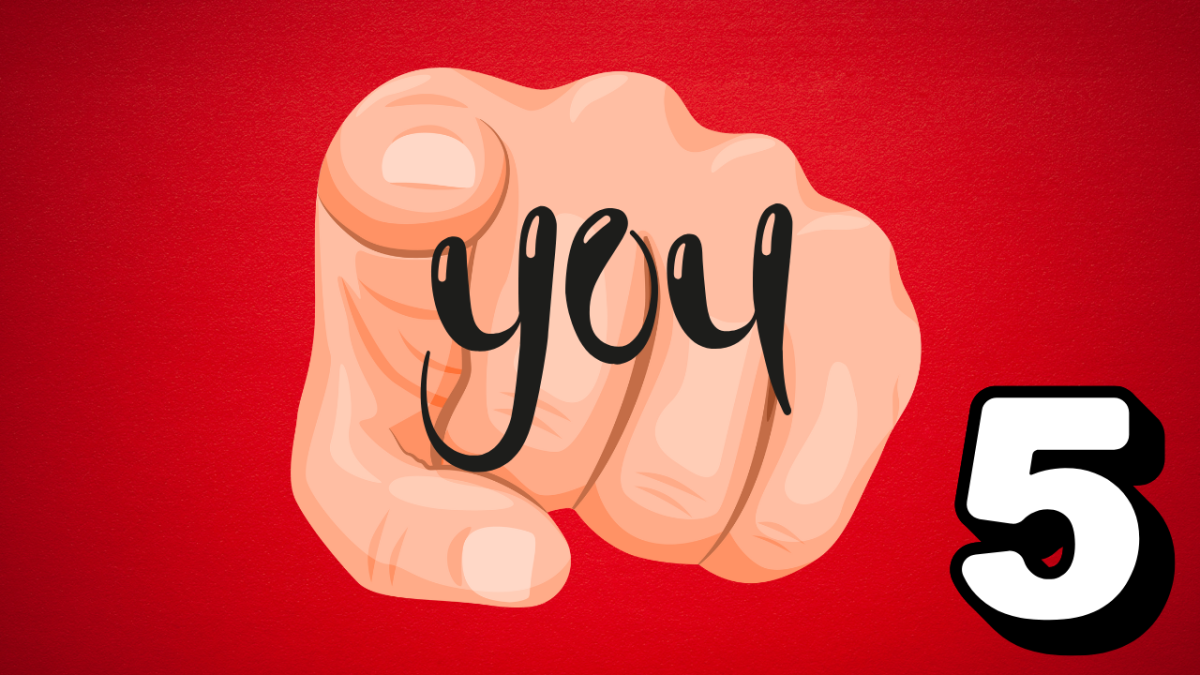The final chapter of the once beloved psychological thriller, “You” has ended with the release of the killer finale: Season five. With its release, it sparked controversy and admiration. Joe Goldberg, despite being a sick, twisted serial killer throughout the seasons, fans followed through due to his character traits being well-written and even relatable to a certain extent. He often justified his actions under the guise of love, protection or justice. But by the final season, he no longer operated under his moral justification for killing; rather, he embraced the darkness he once tried to suppress. This transition made him more terrifying than ever since it revealed that he found comfort in his monstrosity.
Season five appeared to offer justice. Joe had faced his end in jail, rightfully so. However, the story took an unexpected turn at the end when Joe was reading a fan letter and it said, “Maybe the problem isn’t me, maybe it’s you.” Joe turned the mirror on the audience, calling out the hypocrisy amongst his fan base.
Joe is a murderer, a stalker and a narcissist, and yet, his fanbase continues to produce countless fan edits, thirst tweets, defending him for his actions, saying it was somewhat justified, and that he “should’ve won.” My interpretation of this line was calling out the injustices within the justice system and the glorification of certain inmates due to their looks. Despite Goldberg’s flawed way of thinking and dealing with rejection, the fanbase of “You” continues to praise and glorify a serial killer who is nothing but pure evil.
It is a fact that Joe’s backstory is tragic. He was abused, neglected and exposed to violence during his critical stages of development. Perhaps these experiences shaped him, but they do not excuse him. The show itself never attempted to justify Joe’s actions through his past trauma. It simply contextualizes it, and that’s the difference many fans have chosen to turn a blind eye to.
The misunderstanding of the moral of the story became more apparent when I started analyzing the backlash to the finale. I do think the ending could’ve been better, and that Kate Lockwood didn’t deserve a happy ending because she has indirectly killed people as well. However, many viewers claimed the new season was “too woke.” Joe was confirmed to have killed 23 people throughout five seasons, and the fact that people are unsatisfied with the ending because women “won” and “he should’ve won instead” makes total sense that some of the audience missed the point of the whole show.
Ultimately, it is important to re-emphasize that season five was never about women vs. men. It was about power, although that is a popular opinion resurfacing with the release of this season. Joe was a bad person who had to be put to an end, not because he was a man, but because he was a predator who consistently crossed every moral and legal boundary imaginable. The women in the show didn’t “win” because of some feminist agenda; it was because it was the justice they deserved.
Calling the ending of season five “woke” is merely a misunderstanding of the show’s central thesis. The ending did not emasculate Joe but unmasked him. Joe reading a fan letter is not just a narrative device to excuse Joe’s actions, but a metaphor to represent the idolization of criminals in the media.
Ultimately, “You” didn’t mark its end with Joe Goldberg’s redemption but with a challenge to the audience while serving justice. We need to stop excusing monstrous behaviors because they’re packaged to be in the guise of good. If you find yourself wanting Joe to “win,” maybe it’s time to ask yourself why.
*Editor’s note: Stephanie Kim is a student writer. All views expressed in the commentary are her own and are independent of the district, Rouse High School and the publication.


